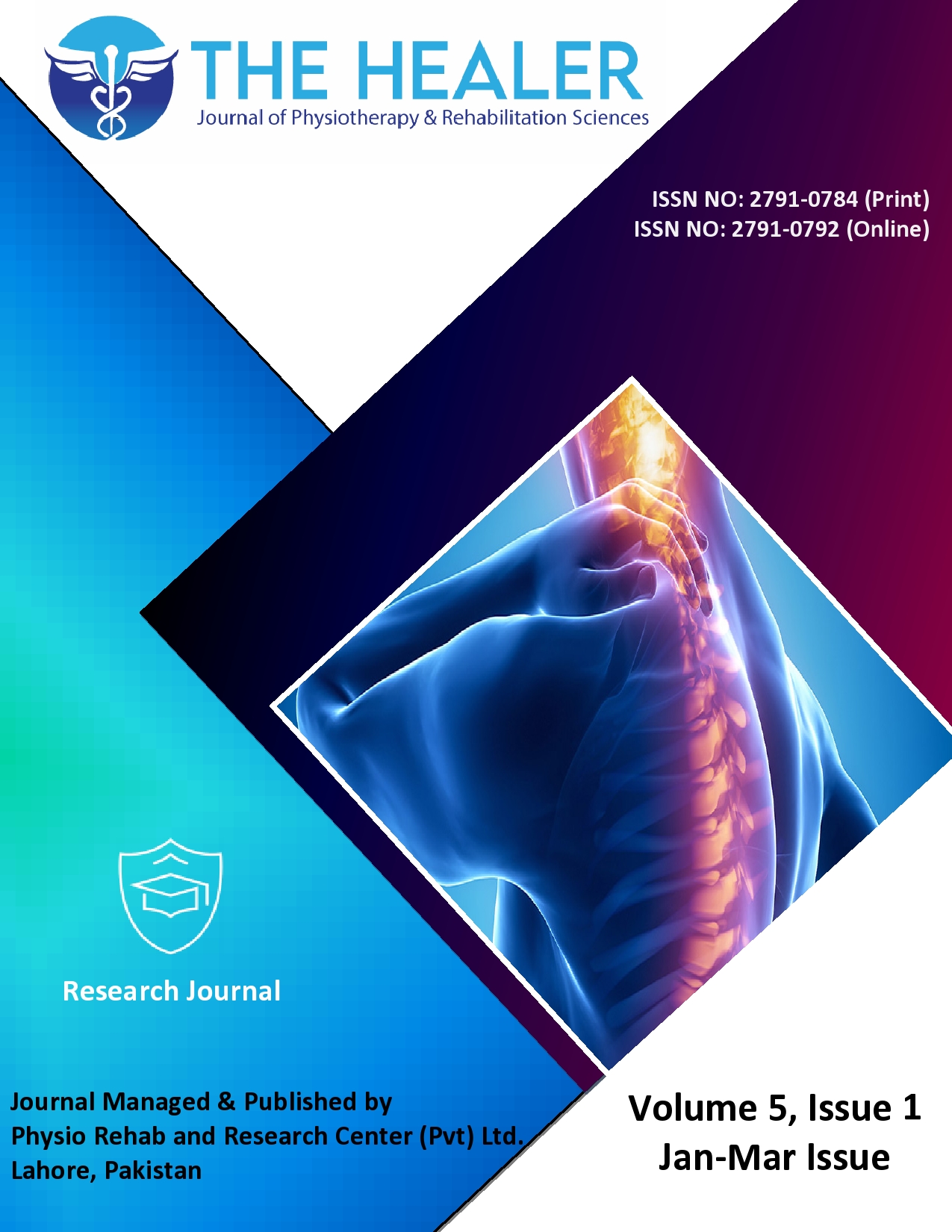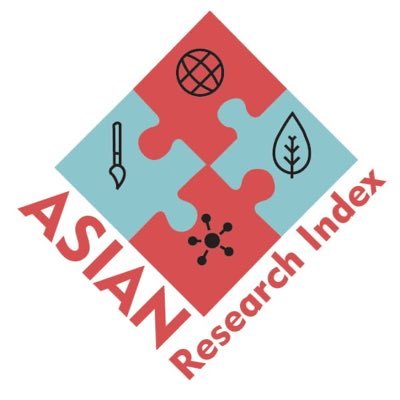Attitude and Readiness Towards Artificial Intelligence Among Rehman College of Rehabilitation Sciences: A Cross-Sectional Study
DOI:
https://doi.org/10.55735/k5rwtb76Keywords:
Artificial intelligence attitude scale , Attitude , Physical therapy students , ReadinessAbstract
Background: Artificial intelligence applications are becoming increasingly prevalent across a wide range of fields, with healthcare being one of the most significantly impacted sectors. Objective: To assess the attitudes and readiness of physical therapy students at Rehman College of Rehabilitation Sciences toward artificial intelligence and to identify factors influencing their preparedness for integrating it into clinical practice and education. Methodology: A descriptive cross-sectional study was conducted at Rehman College of Rehabilitation Sciences for six months from June 2024 to November 2024. After the approval from the graduate study committee of Rehman College of Rehabilitation Sciences, 141 participants were screened, and informed consent was taken. The data collection tools used in this study were the Medical Artificial Intelligence Readiness Scale for Medical Students and the Artificial Intelligence Attitude Scale. Frequencies and percentages were reported for categorical data such as age, gender, year of study, and two general questions about AI. The Shapiro-Wilk test was used to check the normality of the data. An independent T-test was used to investigate the association between attitude towards artificial intelligence and gender, and a one-way ANOVA was used to examine the association between study year and readiness. Pearson’s correlation test was used to find out the correlation between readiness and attitude towards artificial intelligence. Results: About 53.2% participants demonstrated a positive attitude towards artificial intelligence, while 46.8% exhibited a negative attitude. On the readiness scale, students scored an average of 15/40 for cognition, 38/40 for ability, 9/15 for vision, and 11/15 for ethics, yielding an overall mean readiness score of 74±18.8 out of a possible 110. Readiness levels were found to be significantly associated with students’ year of study and were positively correlated with their attitudes towards artificial intelligence. Conclusion: The findings suggest that physical therapy students generally possess positive attitudes and strong technical abilities regarding artificial intelligence. However, gaps remain in cognitive understanding and ethical awareness. While gender differences were not significant, lower readiness levels were noted among third- and fifth-year students. Strengthening educational efforts in artificial intelligence, cognition, and ethics is recommended for more effective integration into physical therapy education.
Downloads
References
1. Holzinger A, Langs G, Denk H, Zatloukal K, Müller H. Causability and explainability of artificial intelligence in medicine. Wiley Interdisciplinary Reviews: Data Mining and Knowledge Discovery 2019; 9(4): e1312.
https://doi.org/10.1002/widm.1312 DOI: https://doi.org/10.1002/widm.1312
2. Rajaraman V. JohnMcCarthy. Father of artificial intelligence. Resonance 2014; 19(3): 198-207.
https://doi.org/10.1007/s12045-014-0027-9 DOI: https://doi.org/10.1007/s12045-014-0027-9
3. Davenport T, Kalakota R. The potential for artificial intelligence in healthcare. Future Healthcare Journal 2019; 6(2): 94-8.
https://doi.org/10.7861/futurehosp.6-2-94 DOI: https://doi.org/10.7861/futurehosp.6-2-94
4. Lee BX, Kjaerulf F, Turner S, et al. Transforming our world: implementing the 2030 agenda through sustainable development goal indicators. Journal of Public Health Policy 2016; 37(Suppl 1): 13-31.
https://doi.org/10.1057/s41271-016-0002-7 DOI: https://doi.org/10.1057/s41271-016-0002-7
5. Liengpunsakul S. Artificial intelligence and sustainable development in China. The Chinese Economy 2021; 54(4): 235-48.
https://doi.org/10.1080/10971475.2020.1857062 DOI: https://doi.org/10.1080/10971475.2020.1857062
6. Guidance W. Ethics and governance of artificial intelligence for health. World Health Organization 2021.
7. Goh PS, Sandars J. A vision of the use of technology in medical education after the COVID-19 pandemic. MedEdPublish 2020; 9: 49.
https://doi.org/10.15694/mep.2020.000049.1 DOI: https://doi.org/10.15694/mep.2020.000049.1
8. González-Calatayud V, Prendes-Espinosa P, Roig-Vila R. Artificial intelligence for student assessment: A systematic review. Applied Sciences 2021; 11(12): 5467.
https://doi.org/10.3390/app11125467 DOI: https://doi.org/10.3390/app11125467
9. Shortliffe EH, Davis R, Axline SG, Buchanan BG, Green CC, Cohen SN. Computer-based consultations in clinical therapeutics: explanation and rule acquisition capabilities of the MYCIN system. Computers and Biomedical Research 1975; 8(4): 303-20.
https://doi.org/10.1016/0010-4809(75)90009-9 DOI: https://doi.org/10.1016/0010-4809(75)90009-9
10. Weiss S, Kulikowski CA, Safir A. Glaucoma consultation by computer. Computers in Biology and Medicine 1978; 8(1): 25-40.
https://doi.org/10.1016/0010-4825(78)90011-2 DOI: https://doi.org/10.1016/0010-4825(78)90011-2
11. Miller RA, Pople Jr HE, Myers JD. Internist-I, an experimental computer-based diagnostic consultant for general internal medicine. The New England Journal of Medicine 1982; 307(8): 468-76.
https://doi.org/10.1056/NEJM198208193070803 DOI: https://doi.org/10.1056/NEJM198208193070803
12. Ienca M, Ferretti A, Hurst S, Puhan M, Lovis C, Vayena E. Considerations for ethics review of big data health research: A scoping review. PloS One 2018; 13(10): e0204937.
https://doi.org/10.1371/journal.pone.0204937 DOI: https://doi.org/10.1371/journal.pone.0204937
13. Brouillette M. AI added to the curriculum for doctors-to-be. Nature Medicine 2019; 25(12): 1808-9.
https://doi.org/10.1038/s41591-019-0648-3 DOI: https://doi.org/10.1038/s41591-019-0648-3
14. Eker A, Çalışkan AA, Zorali A, Kaynak B, Derin ME. Medical Students’ Knowledge and Attitudes about Artificial Intelligence: A Cross-Sectional Survey. Tıp Eğitimi Dünyası 2023; 22(68): 41-51.
https://doi.org/10.25282/ted.1292846 DOI: https://doi.org/10.25282/ted.1292846
15. Komasawa N, Nakano T, Terasaki F, Kawata R. Attitude survey toward artificial intelligence in medicine among Japanese medical students: Osaka Medical and Pharmaceutical University; 2021.
16. Wang X, Fei F, Wei J, et al. Knowledge and attitudes toward artificial intelligence in nursing among various categories of professionals in China: a cross-sectional study. Frontiers in Public Health 2024; 12: 1433252.
https://doi.org/10.3389/fpubh.2024.1433252 DOI: https://doi.org/10.3389/fpubh.2024.1433252
17. Sit C, Srinivasan R, Amlani A, et al. Attitudes and perceptions of UK medical students towards artificial intelligence and radiology: a multicentre survey. Insights into Imaging 2020; 11(1): 14.
https://doi.org/10.1186/s13244-019-0830-7 DOI: https://doi.org/10.1186/s13244-019-0830-7
18. Hajam KB, Gahir S. Unveiling the attitudes of university students toward artificial intelligence. Journal of Educational Technology Systems 2024; 52(9): 335-45.
https://doi.org/10.1177/00472395231225920 DOI: https://doi.org/10.1177/00472395231225920
19. Tubaishat A. An investigation into the attitudes of nursing students toward technology. Journal of Nursing Research 2014; 22(2): 119-25.
https://doi.org/10.1097/jnr.0000000000000029 DOI: https://doi.org/10.1097/jnr.0000000000000029
20. Hamedani Z, Moradi M, Kalroozi F, et al. Evaluation of acceptance, attitude, and knowledge towards artificial intelligence and its application from the point of view of physicians and nurses: a provincial survey study in Iran: a cross‐sectional descriptive‐analytical study. Health Science Reports 2023; 6(9): e1543.
https://doi.org/10.1002/hsr2.1543 DOI: https://doi.org/10.1002/hsr2.1543
21. Lukić A, Kudelić N, Antičević V, et al. First-year nursing students’ attitudes towards artificial intelligence: Cross-sectional multi-center study. Nurse Education in Practice 2023; 71: 103735.
https://doi.org/10.1016/j.nepr.2023.103735 DOI: https://doi.org/10.1016/j.nepr.2023.103735
22. Tung AYZ, Dong LW. Malaysian medical students’ attitudes and readiness toward AI (artificial intelligence): a cross-sectional study. Journal of Medical Education and Curricular Development 2023; 10: 23821205231201164.
https://doi.org/10.1177/23821205231201164 DOI: https://doi.org/10.1177/23821205231201164
23. Boillat T, Nawaz FA, Rivas H. Readiness to embrace artificial intelligence among medical doctors and students: questionnaire-based study. JMIR Medical Education 2022; 8(2): e34973.
https://doi.org/10.2196/34973 DOI: https://doi.org/10.2196/34973
24. Cho KA, Seo YH. Dual mediating effects of anxiety to use and acceptance attitude of artificial intelligence technology on the relationship between nursing students’ perception of and intention to use them: a descriptive study. BMC Nursing 2024; 23(1): 212.
https://doi.org/10.1186/s12912-024-01887-z DOI: https://doi.org/10.1186/s12912-024-01887-z
25. Yalcinkaya T, Ergin E, Yucel SC. Exploring nursing students’ attitudes and readiness for artificial intelligence: a cross-sectional study. Teaching and Learning in Nursing 2024; 19(4): e722-e8.
https://doi.org/10.1016/j.teln.2024.07.008. DOI: https://doi.org/10.1016/j.teln.2024.07.008

Downloads
Published
License
Copyright (c) 2025 The Healer Journal of Physiotherapy and Rehabilitation Sciences

This work is licensed under a Creative Commons Attribution 4.0 International License.














